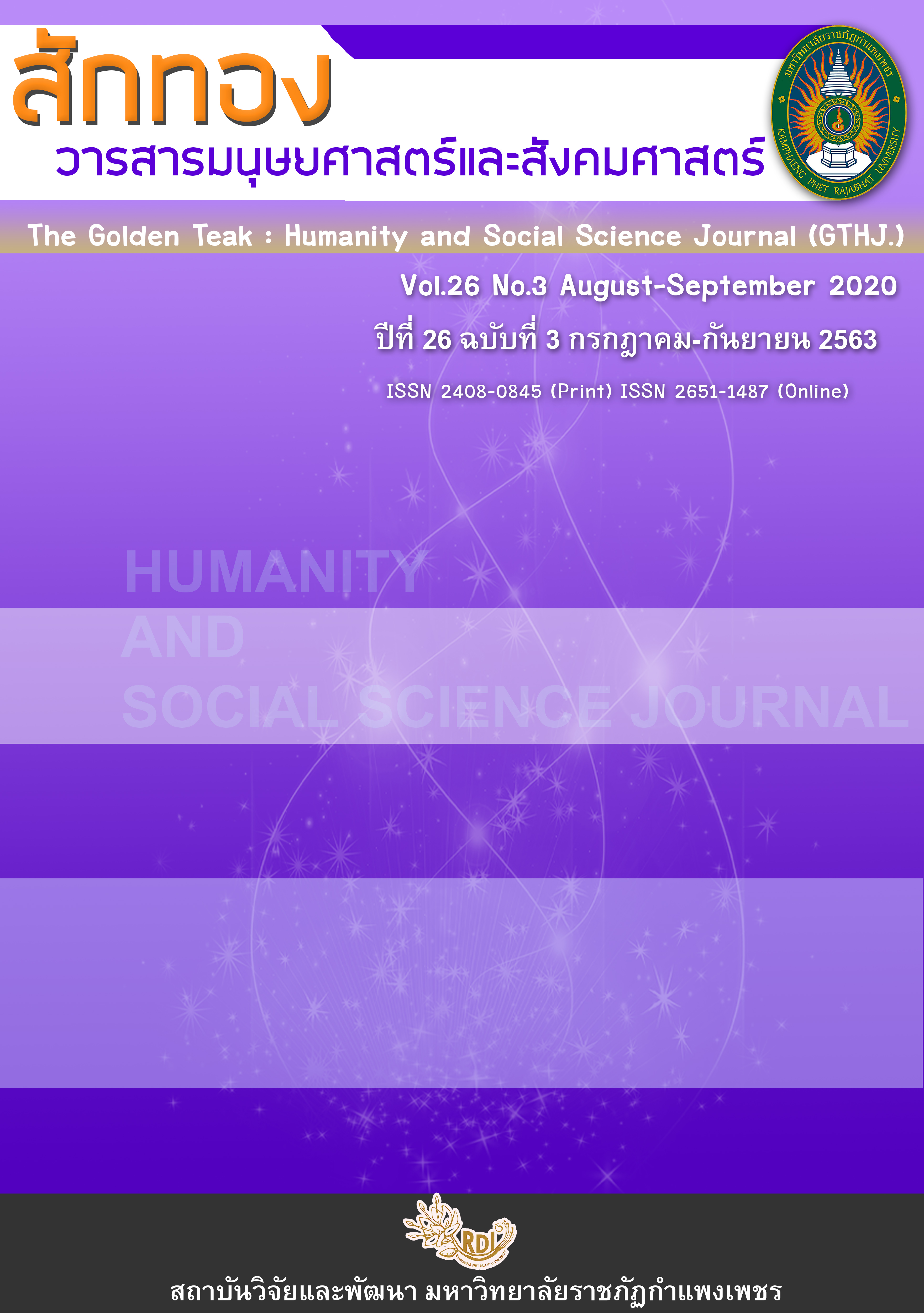Strategic Compensation for Talent Group and Expatriates
Main Article Content
Abstract
80/20, is the rule, of Italian economist Pareto. Could be explained the success of organization that the achievement of firm depended on the minority of people in an organization. A minority group of people who creates strategies and lead organization for the competitive advantages. It is worth noticing that those were people who have high capabilities. They were called ‘talent group’. Hence, organization needs to attract and retain the talent group as long as they could by providing a compelling compensation and benefits (Taweesak, 1994). This is consistent with (Kallayanee, 2013) mentioned that the compensation for talent group, especially the executive is higher than other level in organization. Beneath this reason is the organization’s success was not equally come from everyone, but from the talent group. Those who have high responsibilities on strategic implementation, risk management in the fluctuated and disruptive environment, as well as, generating revenue and profit for the firm. The objective of this academic issue is stress on the theory and strategic practices. It could be use as a guideline for students majoring in human resources and human resource (HR) practitioners for applying in their job. Since, today the migration of workforces are augmented more freely for the job opportunity. In the meantime, organization also needs experts from abroad to run its business for the organizational capabilities and competitive advantages.
Article Details
บทความที่ได้รับการตีพิมพ์เป็นลิขสิทธิ์ของวารสาร สักทอง : วารสารมนุษยศาสตร์และสังคมศาสตร์ สถาบันวิจัยและพัฒนา มหาวิทยาลับราชภัฏกำแพงเพชร
ข้อคิดเห็นใดๆ ที่ปรากฎในวารสารเป็นวรรณกรรมของผู้เขียนโดยเฉพาะ ซึ่งมหาวิทยาลัยราชภัฏกำแพงเพชรและบรรณาธิการไม่จำเป็นต้องเห็นด้วย
References
Boselie, P. (2011). Strategic Human Resource Management : A Balanced Approach. New Delhi : Tata McGraw-Hill.
Cooper, J.M., Gulen, H. & Rau, R.P. (2009). Performance for pay? The relationship between CEO incentive compensation and future stock price performance.
Krannert Graduate School of Management Perdue University.
Ellig, B. (2014). The Complete Guide to Executive Compensation. (3 rd ed.). Singapore : McGrawHill.
Gill, S. (2014). Rewards for failure: an explanation for anomalous executive remuneration. Journal of Indian Business Research, 6(2), 90-172.
Graham, D.M., Roth, A.T. & Dugan, D. (2008). Effective Executive Compensation: Creating a Total Rewards Strategy for Executives. NY : AMACOM.
Jing, R., Wan, Y. & Gao, X. (2010). Managerial discretion and executives’ compensation. Journal of Chinese Human Resource Management, 1(1), 17-30.
Kallayanee. (2013). Strategic Compensation. Bangkok : The War Veterans Organization of Thailand.
Kuhns, A.J. & Sawyer, B.L. (1994). Developing Executive Compensation Programmes : A Fresh Approach. Managerial Auditing Journal, 9(6), 26-30.
Martocchio, J.J. (2014). Employee Benefits: A Primer for Human Resource Professionals. (5 th ed.). Singapore : McGrawHill.
Milkovich, G., Newman, J. & Gerhart, B. (2014). Compensation. (11 th ed.). Singapore : McGrawHill.
McNulty, Y. (2016). Why Expatriate Compensation will Change How we think about Global Talent Management. Global Talent Management and Staffing in MNEs.
[Online]. Available : http://dx.doi.org/10.1108/S1876-066X20160000032005 [2016, March 9].
Murphy, J.K. (1999). Executive Compensation. Marshall School of Business. University of Southern California.
Nisada. (2011). Strategic Human Resource Management for Value Added. Bangkok : Golden Time Printing.
Neljzen, M. & Bruyker, D.S. (2010). Diverse Expatriate Poplations- Alternative Remuneration Packages. Associates for International Research. [Online]. Available :
www.air-inc.com [2016, March 9].
Quah, T.S.J. (2015). Chapter 6 Compensation: paying for the “Best and Brightest” In Public Administration Singapore-Style. [Online]. Available :
http://dx.doi.org/10.1108/S0732- 1317(2010)0000019011 [2016, March 9].
Suutari, V. & Tornikoski, C. (n.d.). Determinants of Expatriate Compensation-Findings among Expatriate Members of SEFE. Department of Management and Organization,
University of Vaasa, Finland.
Somchai, B. (2019). Guidelines of Business Administration on Bhuddhist Ethics. The Golden Teak : Humanity and Social Science Journal, 25(1), 1-15.
Taweesak. (1994). Strategic Human Resource Management. Bangkok : TPN Press.
Ungemah, J. (2015). A Guide to Better People Decision misplaced talent. NJ : WILEY.
World Economic Forum. (2016). These are the best countries for expats. [Online]. Available : www.worldeconomicforum.com [2016, March 9].


